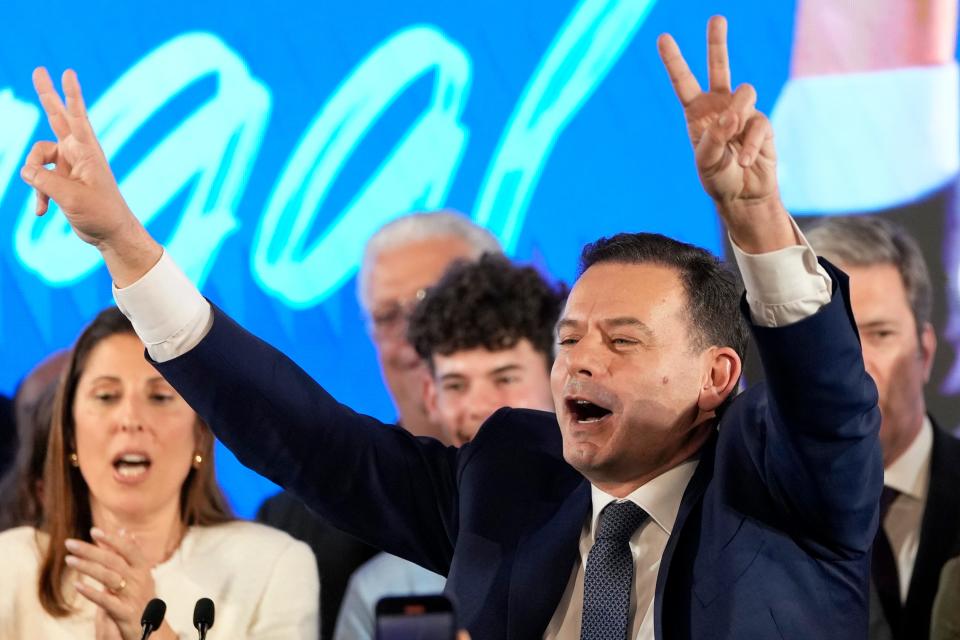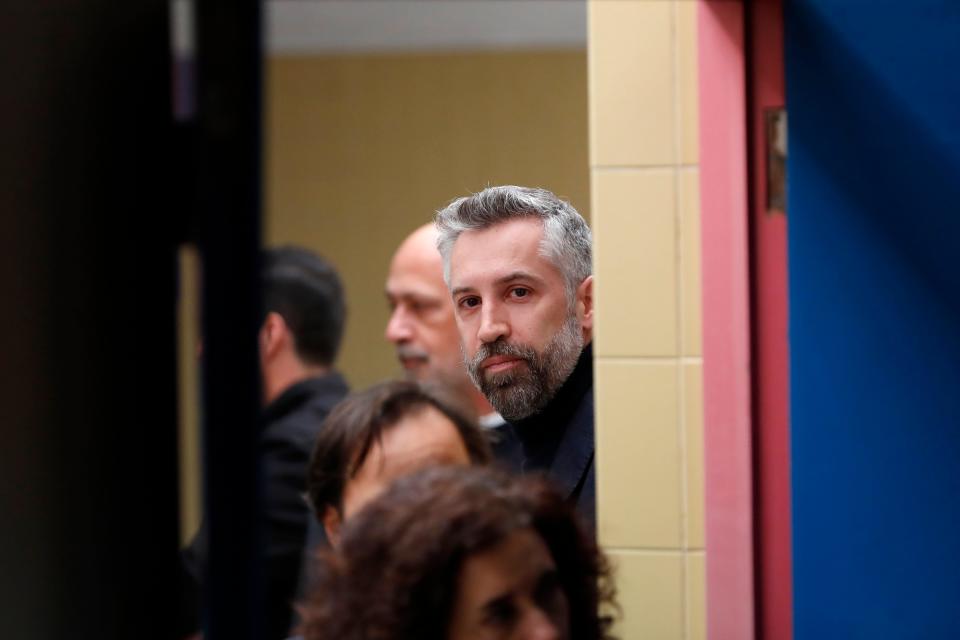Votes from emigrants to decide Portugal's elections, country uncertain of its future
- Oops!Something went wrong.Please try again later.
- Oops!Something went wrong.Please try again later.
LISBON, Portugal — With four emigrant constituency seats seats still to be allocated, Portuguese citizens living abroad could change Portugal's parliamentary geometry.
President Marcelo Rebelo de Sousa announced today he will only nominate the new prime minister once the results of the emigrant constituencies are known, which according to the National Electoral Council's (CNE) calendar will be on March 20.
"Once the results of the constituencies of the Portuguese communities abroad are known, the President of the Republic will appoint the new Prime Minister," reads a note published today on the official website of the Presidency of the Republic.
In the same note, Rebelo de Sousa announced that starting March 11 he will hear the parties and coalitions that won parliamentary representation in Sunday's early parliamentary elections, one on each day, starting with the PAN and ending with the AD, on March 20.
According to Portuguese Law, the general tabulation of results in each constituency must be completed "by the 10th day after the election."

Portugal’s inconclusive general election results mean weeks of political uncertainty ahead, and give fresh energy to Europe’s shift toward the radical right.
A surge in support for a populist party in Sunday’s ballot has placed the hard right at the heart of Portuguese politics. The close contest between two leading moderate parties remained unresolved as they awaited deciding results from voters abroad. Official results are due to be published within two weeks.
The rise of the Chega, or Enough, party — just five years old — has been stunning. It went from 12 seats in the 230-seat Parliament in a 2022 election to 48 seats now.
Voters in Lisbon on Monday were divided.
“I feel very satisfied,” said Fernanda Quest, a 38-year-old maritime transport expert. “I think it is a moment of change.”

But 53-year-old police officer Isabel Fernandes said she felt apprehension “because some of the parties that elected many lawmakers have ideas that may go against fundamental rights, especially of women.”
Chega’s leader, Andre Ventura, has made common cause with other radical right parties across the continent.
Among Ventura’s invited guests in recent years were Matteo Salvini, Italy’s deputy prime minister and head of the populist, right-wing League party, French far-right leader Marine Le Pen and the leader of neighboring Spain’s far-right Vox party, Santiago Abascal.
Those and other European Union countries have witnessed swings to the right in their most recent elections. That is setting political battle lines ahead of June 6-9 elections for the European Parliament.
Portugal's center-right Social Democrat-led Democratic Alliance won 79 seats while the center-left Socialist Party, which governed for the past eight years, collected 77. The two parties have alternated in power for decades. Small parties took other seats.
Four seats are still to be distributed. They will depend on the votes of Portuguese living abroad. Traditionally, the Social Democrats and Socialists claim two of those seats each.

But times are different. Some Portuguese abroad are supporters of former U.S. president Donald Trump and former Brazilian president Jair Bolsonaro, and they could see Chega as emulating them.
After official results are published, Portuguese President Marcelo Rebelo de Sousa will consult the parties about who is best placed to form a government.
Social Democrat leader Luis Montenegro says he won’t accept a governing coalition with Chega, whose policy proposals many Portuguese find unpalatable.
Ventura has said he is prepared to drop some of his party’s most controversial proposals — such as chemical castration for some sex offenders and the introduction of life prison sentences — if that enables his party’s inclusion in a possible governing alliance.
The math is clear: if the Social Democrats and Chega come together, parties on the right will have some 135 seats — and a parliamentary majority — compared with around 90 for parties on the left.
The lack of clarity comes as the country of 10.3 million people needs to deploy billion of euros (dollars) of EU investment funds as part of an economic recovery plan.
“More than the result of the elections I’m worried more about governability, the capacity to reach consensus,” said Luis Marques, a 49-year-old accountant.
An editorial in daily paper Publico said the election outcome was “a punch in the stomach” but the harm was “self-inflicted” because the traditional parties had a poor grasp of the public mood.
A slew of recent corruption scandals tarnished the Socialists and Social Democrats, and Chega ran under an anti-graft banner.
Public frustration with politics-as-usual was evident before the outcry over graft. Low wages and a high cost of living — worsened last year by surges in inflation and interest rates — coupled with a housing crisis and failings in public health care contributed to disgruntlement.
Chega offered a protest vote against all that.
This article originally appeared on The Herald News: Emigrant votes to decide Portugal's legislative elections

